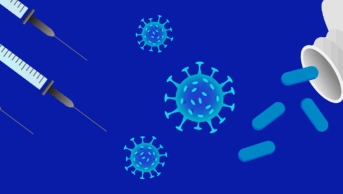As pharmacy professionals, we work across a wide range of sectors in various locations, within different clinical specialities and teams to deliver best practice in medicines optimisation.
But to do this in a truly person-centred way, we need to keep the patient experience in mind through the whole medicines process. This experience will be different for each patient, and pharmacists should keep in mind the neurodiversity — variation of cognitive function — among their patients, and its impact on medicines optimisation, to achieve this goal.
Neurodevelopmental conditions include learning disabilities (intellectual disabilities), dyspraxia, dyslexia, autism and ADHD. These conditions present differently in different people, and, with considerable overlap and co-morbidity, can impact health literacy, including hindering access to good-quality information about medicines.
This may apply not only to the reading and comprehension of the written and printed word, but also to the ability and the speed of processing information, when communicated by speaking face to face, or via telephone or videoconferencing. The ability to focus can be affected too, and an increased sensory sensitivity can mean that background noise, strong smells and bright visual stimuli can also impact the level of concentration.
Neurodevelopmental conditions are life-long, although they may manifest in slightly different ways with age. In addition to increased prevalence of epilepsy in people with learning disabilities, there is an increased incidence of earlier onset menopause and dementia, both of which are particularly evident in people with Down’s syndrome.
Among people with both learning disabilities and autism, there are health inequalities compared with the general population: reduced positive health outcomes, reduced access to healthcare and premature mortality. There is also an increased risk of mental illness and this, together with comorbid physical health conditions, may directly impact the number of medicines that are prescribed, giving rise to potential problematic polypharmacy.
In November 2016, the untimely death of Oliver McGowan, a teenager with mild autism and epilepsy, highlighted the important need for health professionals to have better access to training for patients who are neurodiverse. After a campaign led by his mother, the Department of Health and Social Care announced a commitment to ensure that all staff working in health and social care receive training in autism and learning disabilities.
Neurodevelopmental conditions do not just affect our patients. Many of us may also have diagnosed or undiagnosed conditions, such as dyslexia, ADHD and autism, so we should also strive to be inclusive in our operating procedures and processes, to facilitate better accessibility for everyone. This will include how we manage our staff, support our colleagues, and deliver mandatory and optional training.
The first stage in reflecting on our individual operating systems within the workplace environment is to embrace the concept of co-production and of inclusive processes by working with people with neurodevelopmental conditions, and their families and carers, who use our services. This will ensure that our systems reflect the needs of everyone within our neurodiverse population.
To this end, in February 2020, we launched Medisafedi (MEDIcines- SAFEty- in neuroDIversity), a pharmacist-led network open to all pharmacy and other healthcare professionals. We are committed to optimising medicines within our neurodiverse population by sharing best practice to improve health outcomes. To date, we have launched only on Twitter, but we look forward to launching on other media very soon.
Whatever branch of the profession you practise in, please do follow us @medisafedi and contribute to the conversation.
Danielle Adams, independent specialist mental health pharmacist and PhD student, University of Warwick; Reena Tharian, clinical pharmacist, Norfolk and Suffolk NHS Foundation Trust


